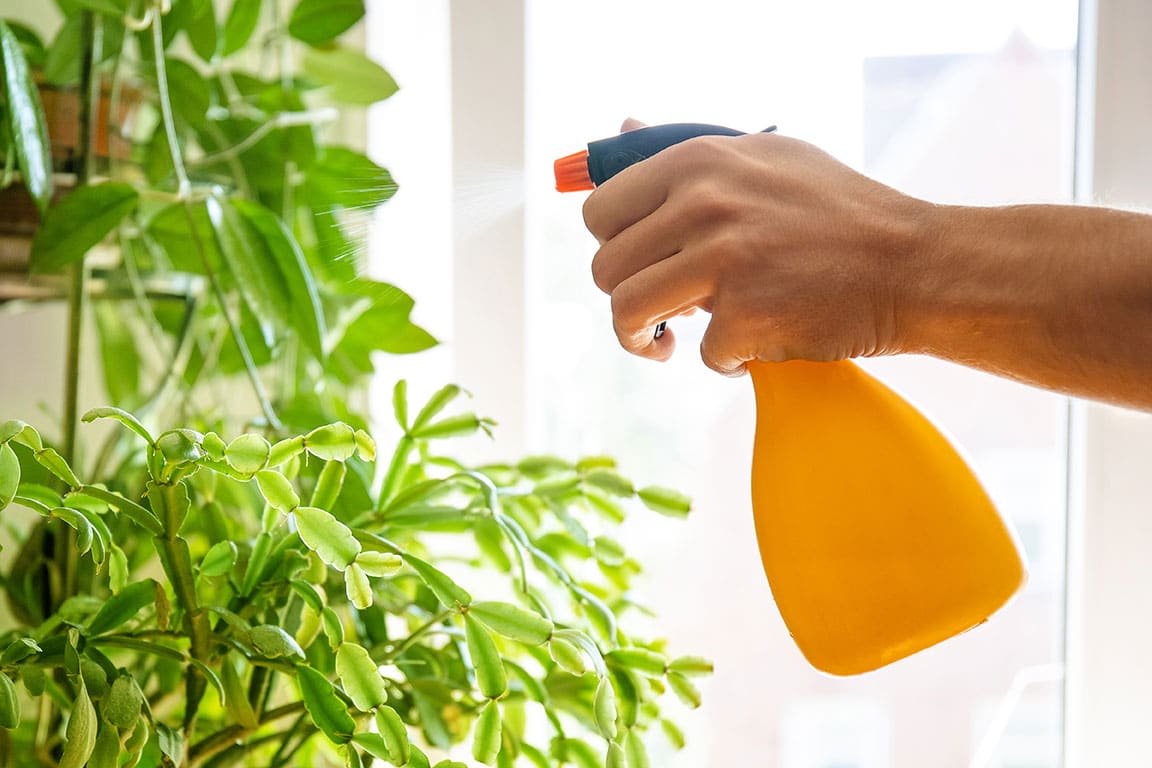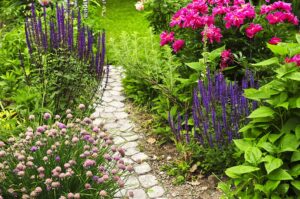No matter how much love you give your houseplants, water, plant food… even a little song: nothing helps. After a few weeks, they wither and end up in the compost. Houseplants add a lot of life to your decor and have many benefits for the quality of the air you breathe. Before resigning and switching to plastic plants, have you considered that maybe it’s your environment that isn’t suitable for plants? Houseplants are mostly tropical plants and you should try to provide them with an environment similar to what they are familiar with so they can thrive to their fullest. Light and humidity are your two main allies.
The right amount of light
Houseplants need a certain amount of light to grow and be healthy. Ideally, they should be placed in a room that gets plenty of sunlight, but not direct sunlight. Direct sunlight, which is very hot, tends to dry out or even burn the foliage.
If you don’t have many windows and they are facing north, chances are your plants will lack light, unfortunately. Our traditional incandescent bulbs are not enough to compensate for the lack of natural light. You can, however, opt for halogens that have a good impact on indoor plants. Choose varieties that do not require too much light. Your nursery consultant will be able to direct you to the right variety for you.
My plant is growing “crooked”?
Your plant will naturally lean towards the window from which the sun is coming. If you want it to grow evenly on all sides, turn it 90 degrees at each watering. This will make it more even.
Controlled humidity
Some plants like drier environments, such as cacti and other succulents. Others thrive in a more humid environment, such as ferns. Generally, we look for a relative humidity between 40 and 60%. If your plants have dry, blackened leaf tips or curl up, it is probably too dry for their well-being. You can use a humidifier or place a container of water near your plants. Evaporation will help them take what they need from the air. Be careful not to let the roots of your plants bathe in water, they will rot.
Water regularly, as soon as the soil is dry, and spray the foliage from time to time. Avoid placing your plants near heat sources. Electric heating dries out the air a lot, so your plants near it will suffer from dryness and heat.
There are hundreds of varieties of indoor plants, flowering or not. Ask our specialists at the garden centres to find out which one is best suited to your environment. This will help you avoid disappointment, because even the most beautiful plant, if withered and faded in the corner of your living room, is not very interesting.









